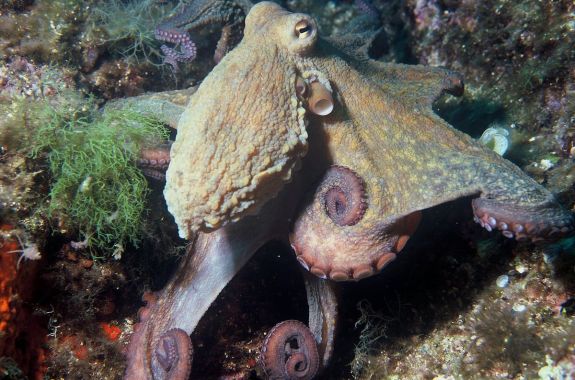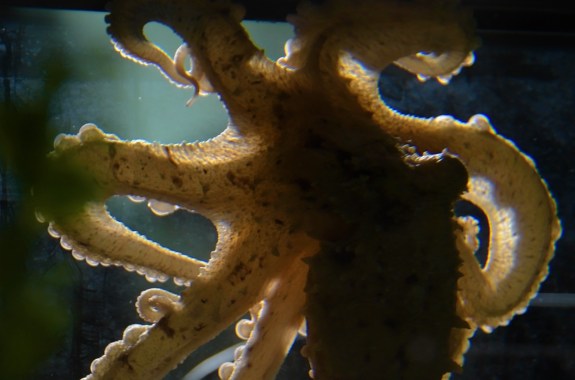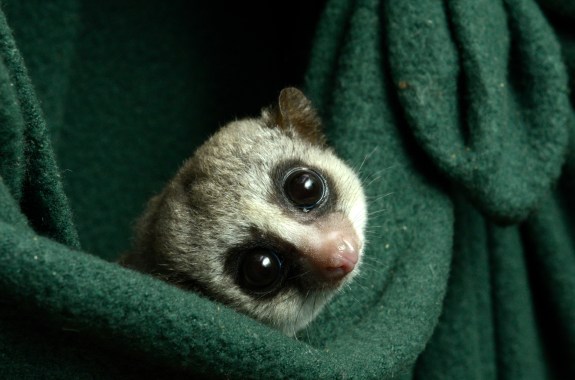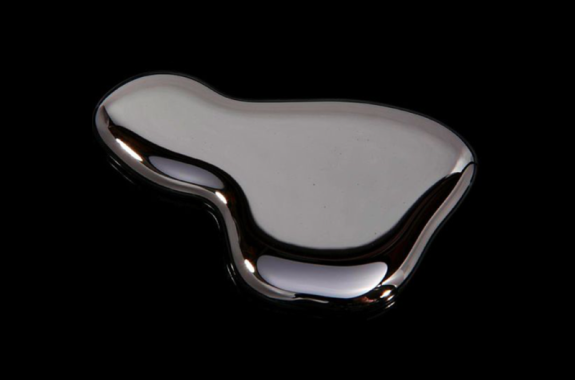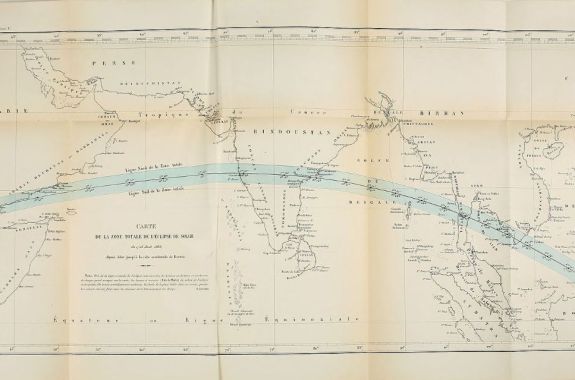Johanna Mayer is the former host of Science Diction from Science Friday, a series that digs into the scientific origin stories behind our words and language. She spends a lot of time with the Oxford English Dictionary.
Before joining Science Friday, she worked as a freelance writer and taught English in Japanese public schools for two years on the Japan Exchange and Teaching Program. In addition to her classroom duties, she once ate 52 pieces of sushi in a single sitting.
When she’s not working, she’s probably baking a fruit pie. Cherry’s her specialty, but she whips up a mean rhubarb streusel as well.
33:45
Eating Smarter In A Warming World
Our eating habits produce a quarter of the world’s greenhouse gas emissions—but scientists are finding smarter ways to grow and distribute our food.
Dive Into A Reddit AMA With Three Cephalopod Researchers
They talk about octopus behavior, fossilized cuttlefish ink, and proper cephalopod grammar.
The Distributed Mind: Octopus Neurology
In a highly-anticipated experiment, researchers are attempting to decode how the octopus controls its multi-armed mind.
34:14
The Best Science Books To Read For Summer 2019
From historical nonfiction to graphic novels to poetry, we’ve got plenty of recommendations for science books.
Sleeping Cutie: The Hibernation Habits Of Dwarf Lemurs
Dwarf lemurs and humans share a significant gene that could influence the future of heart surgery and space travel.
Etched From The Mind
Neuroscientist and artist Greg Dunn illuminates the intricate processes of the brain.
The Origin Of The Word ‘Seaborgium’
For 20 years, it was known simply as “element 106.”
The Origin Of The Word ‘Mercury’
From ancient alchemists to Lewis and Clark, mercury has a storied history.
The Origin Of The Word ‘Helium’
Astronomers thought the element could only be found in the sun.
Head Of NASA Jim Bridenstine Answers Your Questions
The NASA administrator discusses everything from Mars to the Space Force.

